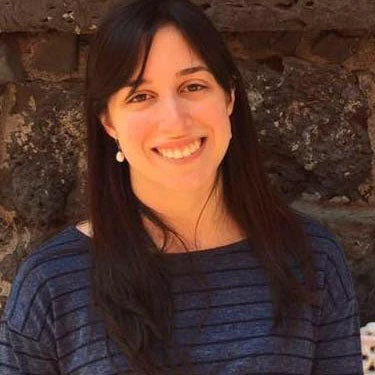
Imagine you’re a professional football player. Your new team has a unique training philosophy. An intensive one-week training before the start of the season, where a trainer lectures all players on game tactics, is all you get. Some of the instructions are helpful to you, but many aren’t relevant to your level of skill, or it’s not clear how you could apply them in the field. You get no opportunities to practice, and the team has no coach, so no one watches you play to provide specific feedback on what you are doing well and what you can improve.
Do you think this training philosophy is effective? So why do we expect this approach to work for teachers? If teachers are the single most important school-based factor influencing student learning, shouldn’t we provide them with the best possible support?
Today, many education systems do not offer teachers high-quality professional development opportunities to improve and strengthen their teaching practice. Teachers often do not receive high-quality pre-service training, which leaves them unequipped to enter the classroom. In-service teacher professional development (TPD) programs can improve the skills of the existing cadre of teachers within the education system. Many countries invest a sizeable amount of their education budget in these programs, but many have been largely ineffective so far.
Recent research shows that TPD programs that are subject-specific, incorporate lesson enactment, include initial in-person training and tie participation to career incentives contribute more significantly to student learning. But an analysis of 139 TPD programs in low- and middle-income countries found that much of the professional development teachers receive does not align to practices associated with better student performance: the programs are often highly theoretical, do not provide enough opportunities to practice new skills, and provide little follow-up. In the same way that we wouldn’t expect a lecture-based, one-off training model to be the best way to prepare football players to play well, the current in-service professional development opportunities many teachers receive are not conducive to helping them improve their instructional practice in the classroom.
The COVID-19 pandemic has further exacerbated the global learning crisis and reinforced the unique role teachers play in ensuring students learn. Today it is more important than ever to ensure every teacher is supported to be able to teach effectively in the classroom. It is critical that countries develop and design their TPD systems to ensure that all teachers have access to high-quality learning opportunities to improve their practice.
The World Bank’s new Coach program aims to accelerate student learning by improving in-service TPD. Integrated within the Bank’s larger efforts to enhance teacher policies via the Global Platform for Successful Teachers, Coach builds on Teach, our open-access classroom observation tool. While Teach helps identify teachers’ professional development needs, Coach leverages these insights to tailor the support teachers receive to improve their teaching. Coach encompasses different types of support—in the form of one-on-one coaching, group training sessions and workshops, and other approaches, either through in-person, remote or hybrid modalities—to improve the quality of teacher-student interactions, which is key to improving student learning outcomes.
Coach supports countries in shifting from traditional, ineffective in-service TPD systems to ones that use insights from the fields of adult learning and behavioral science. Coach adopts evidence-based principles for TPD that have shown to lead to improved teaching practices. The vision of Coach is to help countries build and improve their TPD programs towards models that are:
- Tailored: Many programs today adopt a one-size-fits-all approach where all teachers receive the same training opportunities. Coach moves towards a model where professional development opportunities are aligned to teachers’ needs, eventually using data to identify, prioritize and develop learning opportunities for each teacher.
- Practical: Many programs today are highly theoretical and lecture-based, providing teachers with few opportunities to practice the new skills they are building. Coach moves towards a model centered on practical skills, focused on what teachers need to do in the classroom, and gives multiple opportunities for teachers to practice these new skills, receive feedback, and improve.
- Focused: Many programs today are focused on a broad set of skills, and often do not give enough time for teachers to master new content. Coach builds towards a model focused on mastery of a targeted set of 2-3 foundational teaching skills at a time, instead of general training on a wide range of techniques.
- Ongoing: Often programs focus on providing intensive initial training to teachers, with little to no follow-up support. Coach builds towards a model focused on providing continuous support through repeated cycles of observation and feedback and regular, ongoing opportunities for follow-up training throughout the school year.
The Coach program focuses on improving in-service TPD through a two-pronged approach.
First, the program involves providing hands-on technical support and guidance to government counterparts in countries like Mozambique and the Democratic Republic of the Congo (DRC) to improve in service TPD systems to provide tailored, practical, focused, and ongoing support to teachers.
Second, the program will develop free tools and resources for policymakers, researchers, and other system-level leaders, along with materials and tools for pedagogical leaders and teachers, focused on giving guidance on how to provide the most effective support for instructional improvement.
This two-pronged approach of in-country work and production of global public goods inform each other, so that there is a constant feedback loop between evidence and practice. Over the next few weeks, we’ll be showcasing some of the Coach tools and resources.
Coach seeks to build on the knowledge base and insights generated from the work of governments, development partners, NGOs, researchers, and other stakeholders who have long been engaged in improving TPD. We are eager to learn from effective and innovative in-service TPD programs that have been or are currently being implemented around the world. If you know of such a program, we’d love to hear from you! Write to us at coach@worldbank.org to share more information. We also invite you to accompany us on this Coach journey by following us on Twitter (@WBG_Education) or checking out our webpage!





Join the Conversation